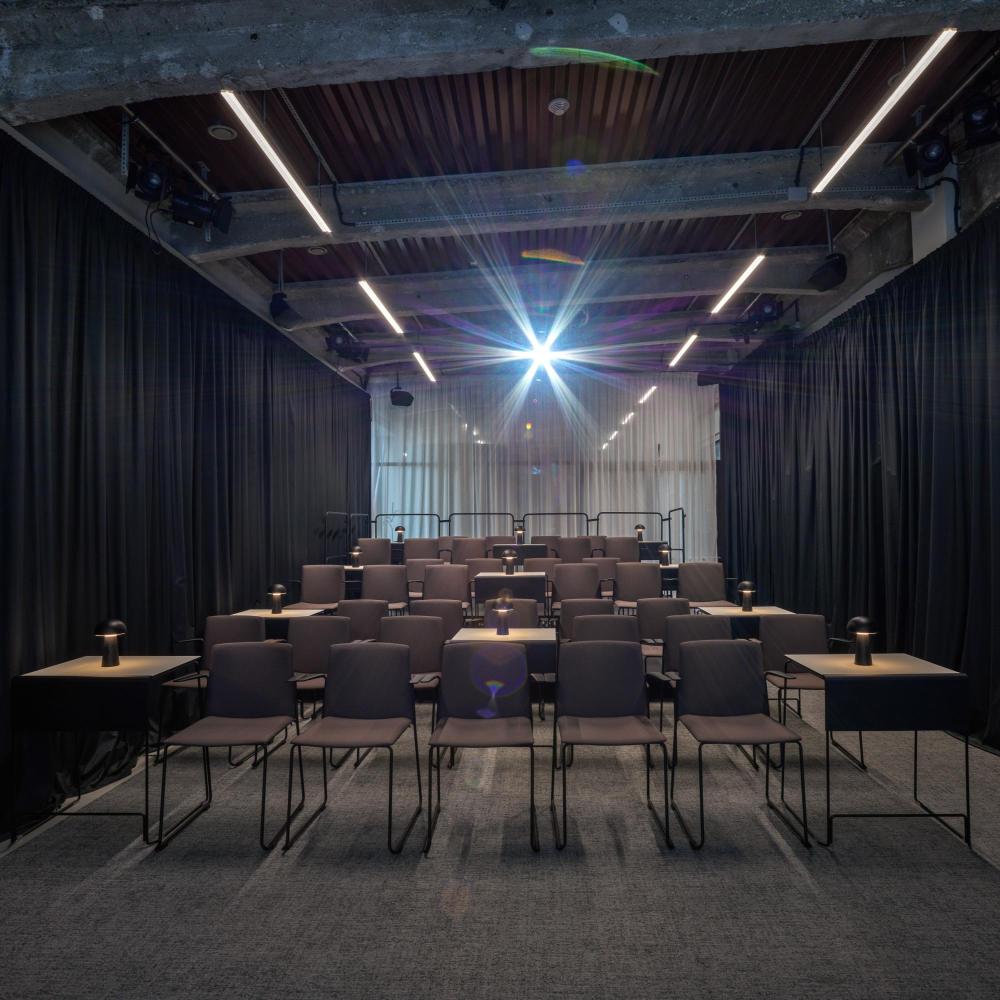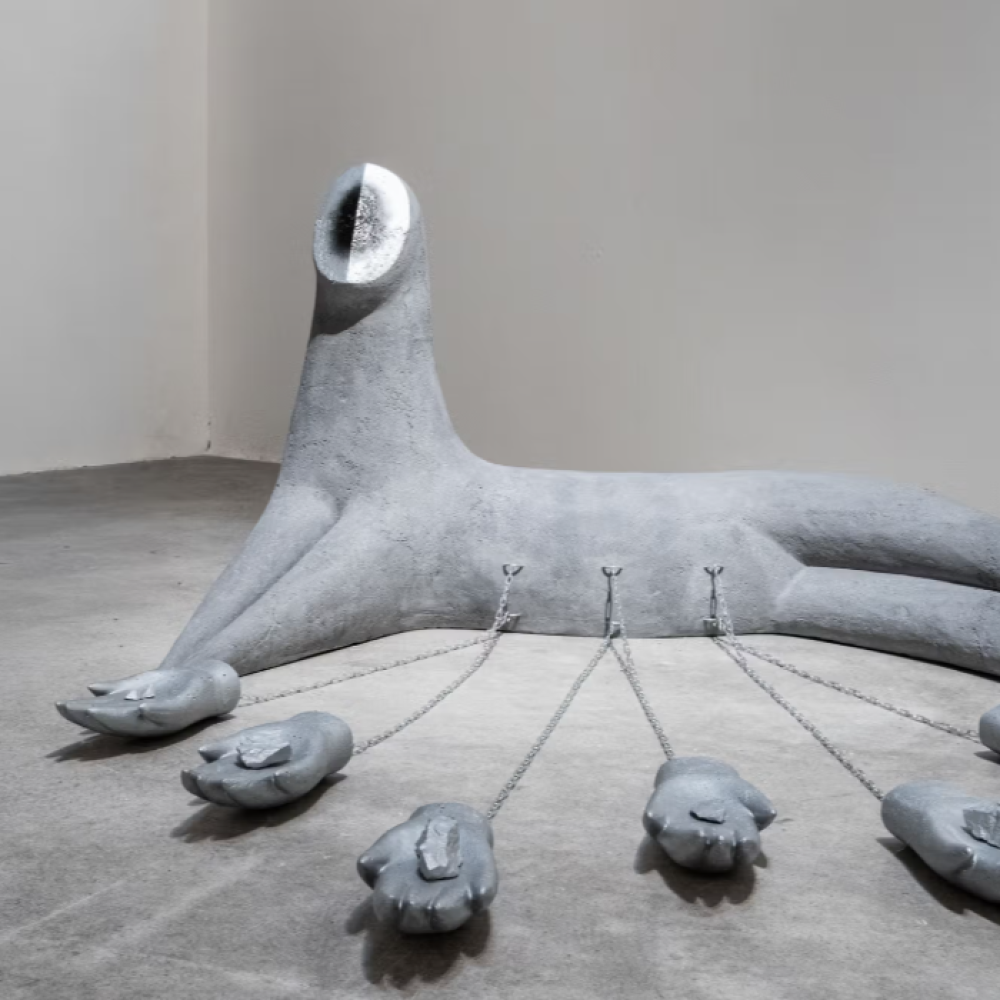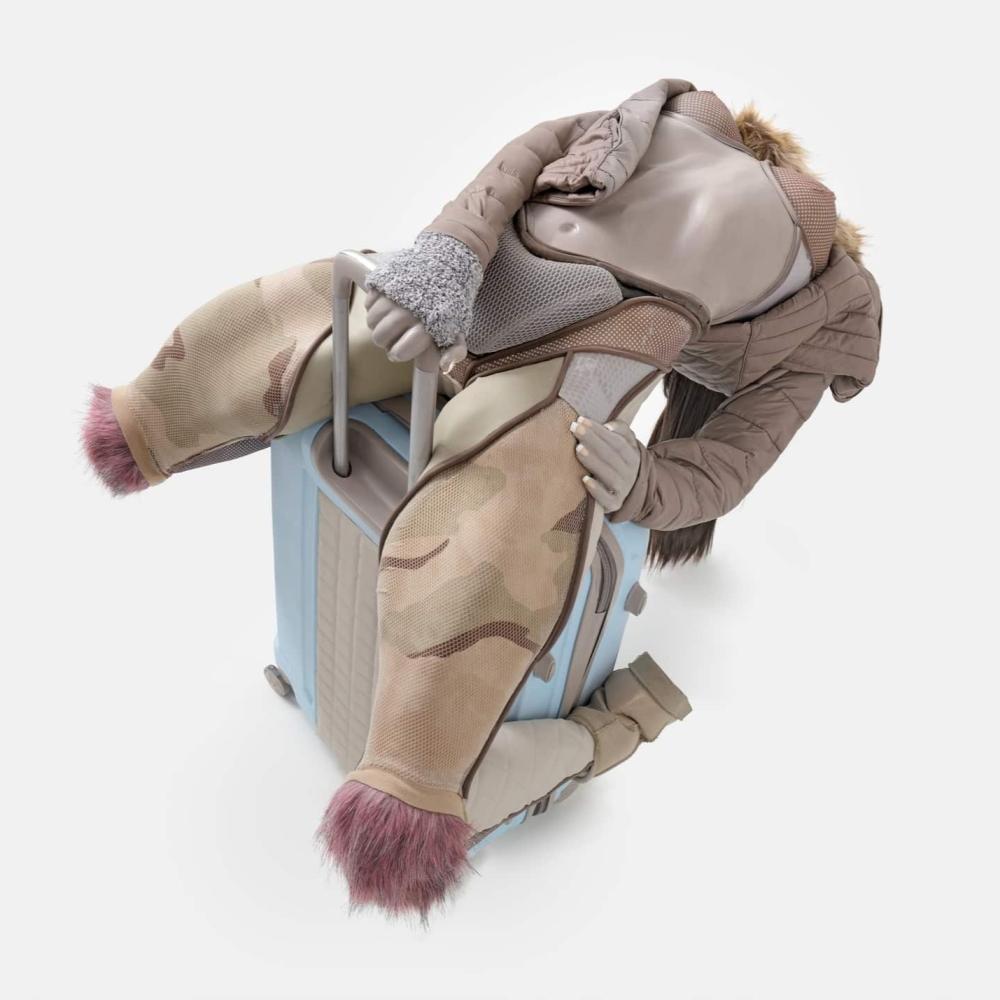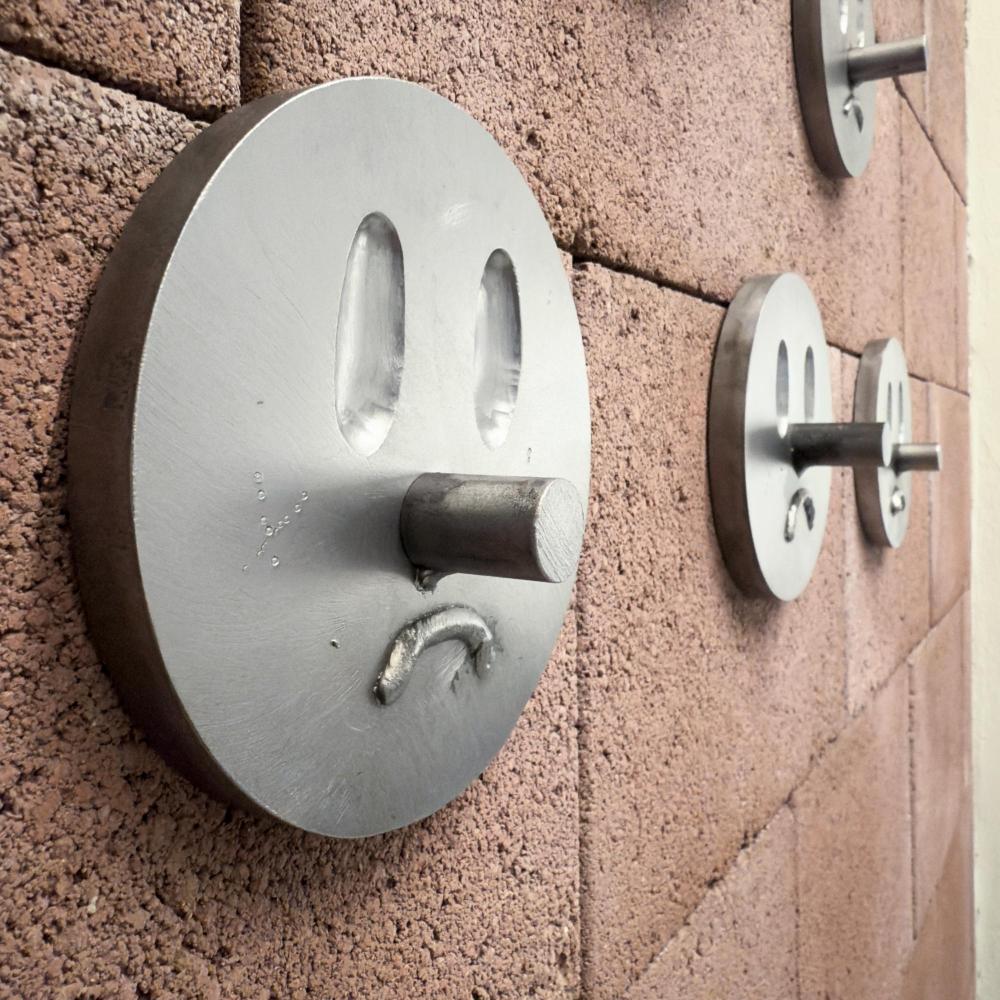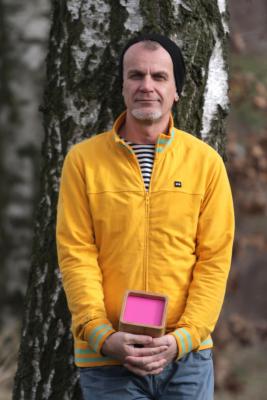
Jiří Ďuriš is the founder of Optimistic coffin, which is a high-quality, all-wood, handmade Czech coffin in a new, timeless design. "For lovers of design to the grave!" The uniqueness of the Optimistic Coffin lies in its innovative, fresh, sophisticated and optimistic look using contemporary colours and graphics. The new product, despite its function, does not feel depressing, unlike the existing range on the market. It seeks to ease the bereaved with the daunting task of saying goodbye to a loved one.
Jiri Ďuriš will be presenting his work on Tuesday, May 10 at 6:00 pm at Promotion in the Creative Industries #3, where you will be able to hear how he handles the presentation of this product. If you're interested in his work, read the following interview.

Let's start with probably your most famous product, the Optimistic coffin. Apparently the idea was part of your thesis and you subsequently presented it at Design Week in 2015. Who helped you realize this project?
First we started exhibiting the project and based on that we tried to see if there would be interest in the product. Then we went around to joinery workshops in the Czech Republic that could help us with the realization, but just the template was very expensive. So we thought of approaching a friend who has his joinery shop not far from here and we made the first model. We have been working with him ever since.
Were you worried about the clientele in the Czech market?
I still have concerns. It's not so much the Czech clientele, but the topic in general. Any product in this business is almost invisible. That's why we chose the reverse tactic. I tried to present the products first in designer exhibitions. Our product has attracted mainly the younger generation. Then the media picked up on it, which also helped us. I am not so afraid of the Czech clientele anymore, but the turnover is still not what one would imagine or what the products deserve.
Are you currently specialising mainly in the Czech market or are you planning to establish yourself abroad as well?
I am not planning anything. I am a patriot and somehow I have been concentrating mainly on the Czech market. It's Czech stuff from Czech manufacturers. However, the reality is a bit harsher. At the moment, production and materials have become significantly more expensive. And also transportation, which is a significant price driver. Now we are also working with a German design studio. We also exhibit in Hamburg, for example. There is a lot of interest in our products. Paradoxically, we thought that price would be the problem of demand, but for Western countries, on the contrary, the price seems to be favourable. Also the education in this respect is different abroad, compared to our post-communist country, which still holds on to the baroque way of burial. I also get enquiries from Italy and other European countries, but the biggest problem here is really the transport.
Is it possible to order an Optimistic coffin from you years in advance?
We've had a few customers try it, and we've even done customized products. But it's perishable furniture. That's why it's made that way. If we had chosen a more durable material of manufacture, the price would have been considerably higher. Plus, even funeral services have rules about the durability of coffins, so there would be a problem with that too.
You also do graphic and interior design as part of your firm, HogoFogo Design. In Olomouc, you have contributed your work to, for example, Hanácká hospoda, Cafe na Zábradlí or the now defunct Pizza Netopýr. Do you remain faithful to Olomouc or can we see your work in other Czech cities?
Then it's more about private commissions, for example family apartments, which are full of gadgets and hiding places. Paradoxically, I can't talk about them publicly. But I don't target only Olomouc, I do as I am approached.
Among other things, you are a teacher at the Secondary School of Design and Fashion in Prostějov. Do you find working with students rewarding?
Of course it is, otherwise I wouldn't do it. I'm also a young, or rather old, dad and in that respect it all rejuvenates and enriches me in a way. I like seeing the feedback. If I only worked with people the same age, all I'd see is the downward curve and the black humor - We're getting into your products - and I don't want that. The students charge me up. Even though there are new and new generations coming up today that are terribly fragile. There are new problems with them and sometimes the joyful mornings become quite frightening. But despite all that, I still enjoy it.
Is there anything you would change about the Czech education system and what, on the contrary, do you evaluate positively?
I am a practitioner who came into education, not a theoretician who does something in his spare time. But I am dismayed to find that the education system is set up in a rather crazy, inadequate and inflexible way. Personally, I have a problem with the responsibility for fourth year students coming out and not being held accountable somewhere. That's why I try not to promise them mountains. I can improvise to a certain extent within my courses, but if we take education as a whole, I cannot fully evaluate it. I am not satisfied. And the positive? I'm grateful we have the education system at all. But it's like a pub. A business can have the best design, but if the food isn't good and the service is nice, the customers won't be happy. There are days when it makes more sense to me to make the coffins than to teach.
You didn't graduate from college right out of high school, but at an age when you already had a wealth of career experience. But is there anything you would recommend to young designers in the early days of their work?"
A designer, from my perspective, is a person who makes something meaningful. Something not elusive, strange, something that he calls neither art nor design. Such a person should be the first to enter any factory. You have to learn the processes and the science of materials. This knowledge is essential for creation. It's not just about creating a 3D model, but you need to feel the materials. You have to start from the ground up. This also teaches humility. Suddenly, they also think about the technical workmanship and the cost of the materials. This practice will definitely teach you more than forty-five minutes of instruction in school.
What projects are you currently working on?
Now I'm doing a reception for a law firm. I'm also doing graphics, of course, and at the same time I'm coming up with a new urn project for animals.
It is said that behind every success there are many failures. Have you also had any funny stumbles along the way to your successes that you'd like to share?
One stumbles from discovering that not everything they do is completely right. But I don't feel any significant stumbling. Since I didn't enter the industry until later in life, I had some knowledge and humility. I have achieved my dream. From my early days when I was really working with a shovel in my hand, I have worked my way up to where I am. And no matter what I've screwed up, I'm still fulfilling that dream and I'm basically happy.
By Romana Bocková
